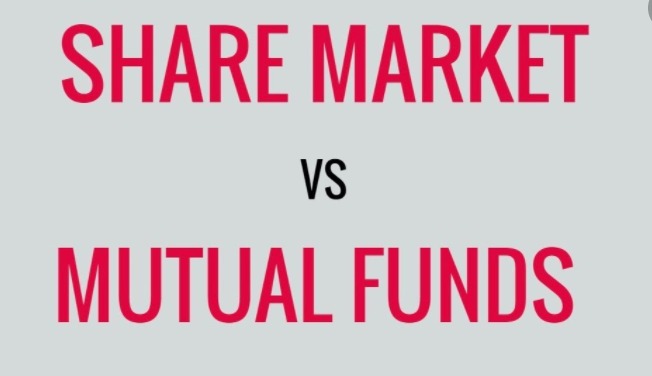What is the Difference Between Mutual Funds and Share Market?
- Posted on April 01, 2020
- Editors Pick
- By Glory

There are different types of investors— large-scale and small-scale investors. As a result of the nature of each type of investors different investment vehicles have been created to suit their demands. While many large-scale investors can afford to directly invest in equities, not many small-scale investors can afford it. Hence, the creation of mutual funds to allow small-scale investors pool funds together to invest in equities.
The share market allows individual investors to invest in it by buying the shares of the listed company. Shares make up a small portion of a company’s value that investors buy into. Doing so would make the investor a shareholder in the company regardless of how many shares of the company they own. While Mutual funds are investments—stocks and bonds—pooled together by a group of investors. They are managed by fund managers in an Asset Management Company. These asset managers or fund managers are also responsible for offering financial and investment counsel to the investors of a mutual fund to aid their investment decisions,
Mutual funds are financial instruments through which a group of small-scale investors can invest in the shares of different companies that are listed on a stock exchange. They are mostly managed by a fund manager who would help the investors make important investment decisions such as knowing what stocks to invest in per time. Mutual funds are not limited to shares alone as other investments like bonds, treasury bills, real estate, gold, and other commodities can also be included in a single portfolio. They also help average investors diversify their portfolio at a lesser amount compared to trying to diversify their individual portfolios if they directly invest in stocks and other securities.
The major differences between mutual funds and the share market are:
Mutual funds are passive in nature, thereby, allowing all types of investors whether experienced or inexperienced to partake in it. Whereas, the share market requires that investors are actively involved in it by putting in more time and dedication. Inexperienced investors may also have to commit time to properly understanding how the share market works before setting off alone.
Mutual funds are more diversified in nature, therefore, losses in a portfolio can be covered by the gains in other investments. For example, if a mutual fund contains 15 stocks, the slightest drop in 3 of those stocks would not greatly impact the whole fund if the remaining 12 performs well. The share market doesn’t provide its direct investors this opportunity unless the investor has a separate diversified portfolio or if the investor is dealing with a significant number of stocks simultaneously, which would also imply more risks for the investor.
Trading in shares requires the trader to own a demat account while it is not quite necessary with mutual funds.
Investing directly in shares allows the investor to make personal decisions and strategic moves in their investment. They are also responsible for managing their investments and making financial decisions for their investments. They can also seek professional help through full-service brokers or robo-advisors. While mutual funds are managed by a fund manager, usually an asset management company. Financial and investment decisions can be suggested to the mutual fund investors by the fund manager.


Be the first to comment!
You must login to comment